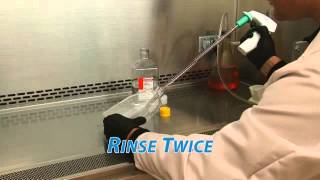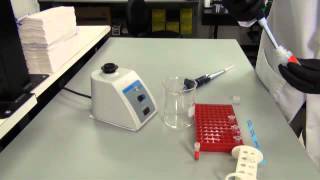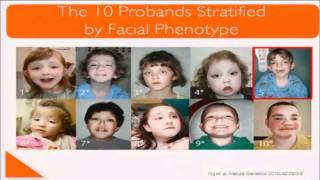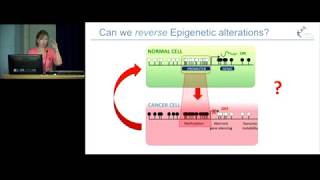Thursday, 15 January, 2026г.
















Где искать: по сайтам Запорожской области, статьи, видео ролики
пример: покупка автомобиля в Запорожье
Can You Trust Your ChIP Results?
The success of your ChIP experiment relies on the antibody you choose. This video describes the different validation approaches our scientists use to ensure antibody performance in ChIP-qPCR and ChIP-seq. For more ℹ️ visit: https://cst-science.com/chipvalidation
Transcript:
Chromatin Immunoprecipitation, or ChIP, enables the accurate detection and quantification of protein-DNA interactions by immunoenrichment of protein bound to DNA. The enriched DNA is then purified and analyzed by qPCR or next generation sequencing to investigate epigenetic changes that regulate gene expression.
The specificity and sensitivity of the antibody used during immunoprecipitation is critical to the success of your ChIP experiment. When designing your experiment, you need to be confident the antibody you select will only detect your protein of interest, so that you can generate reliable and reproducible results.
No single assay is sufficient to ensure antibody performance, so scientists on our ChIP team use multiple validation strategies to ensure every antibody we recommend for ChIP meets the highest quality standards. Here, we’ll introduce some of the methods we use at Cell Signaling Technology during antibody development. For a more extensive description, visit https://cst-science.com/chipvalidation
Starting with ChIP-qPCR validation, antibody specificity is determined by analyzing at least two known positive and one known negative target loci* to measure fold-enrichment, which must exceed a prespecified threshold to be recommended for ChIP.
Antibody sensitivity is determined by comparing target enrichment of the antibody to a negative isotype control to test if it meets a predetermined minimum threshold for fold enrichment. We also perform antibody titration to identify the optimal antibody dilution, which we provide to you in the datasheet for each antibody.
To validate antibodies against post-translational modifications, or PTMs, such as methylation and acetylation, we use histone peptide arrays to confirm the antibody is highly specific for the target protein only when carrying the specific type of PTM at the desired residue, and that binding is not affected by steric hindrance from neighboring modifications.
Cell Signaling Technology recommends an antibody for use in ChIP only when it meets these validation criteria for ChIP-qPCR. For an antibody to be recommended for ChIP-seq, the validation standards are even higher, because ChIP-seq requires more extensive capture of the target protein, from a large number of loci across the genome.
Antibody sensitivity in ChIP-seq is evaluated by comparing peaks for enriched loci to background signal to measure signal to noise ratio. To be recommended for ChIP-seq, an antibody must provide an acceptable number of enrichment peaks and a threshold signal-to-noise ratio across the genome. In addition, antibody specificity for transcription factors is examined by motif analysis of the enriched chromatin fragments to confirm binding at known response element binding motifs.
Specificity of an antibody can be further confirmed by comparing its enrichment across the genome to that of antibodies directed against distinct target protein epitopes, or against different subunits of a multiprotein complex, to give you more confidence your results are accurate. Finally, the antibody’s enrichment across the genome is compared to that of other antibodies used in datasets such as ENCODE, to further confirm specificity and validate that our antibody performs as expected in ChIP-seq.
No single assay is sufficient to guarantee antibody specificity and performance in your workflow. Every time you bring an antibody into a ChIP-qPCR or ChIP-seq experiment, look for validation data performed in the assay you will be using. CST antibodies are validated using multiple assays and strategies to give you confidence in the reliability and reproducibility of your data.
?About CST®: Cell Signaling Technology (CST) is a private, family-owned company, founded by scientists and dedicated to providing high-quality research tools to the biomedical research community. Our employees operate worldwide from our U.S. headquarters in Massachusetts, and our offices in the Netherlands, China, and Japan. https://cellsignal.com/about
Теги:
antibody validation reproducibility chromatin chromatin immunoprecipitation ChIP-seq ChIP-qPCR PCR specificity next-generation sequencing epigenetics gene expression ENCODE histone transcription factor histone modification histone mark epigenetic mark yt:cc=on
Похожие видео
Мой аккаунт


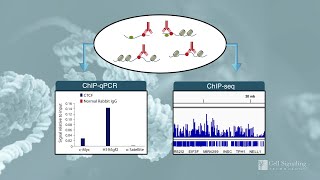 У вашего броузера проблема в совместимости с HTML5
У вашего броузера проблема в совместимости с HTML5